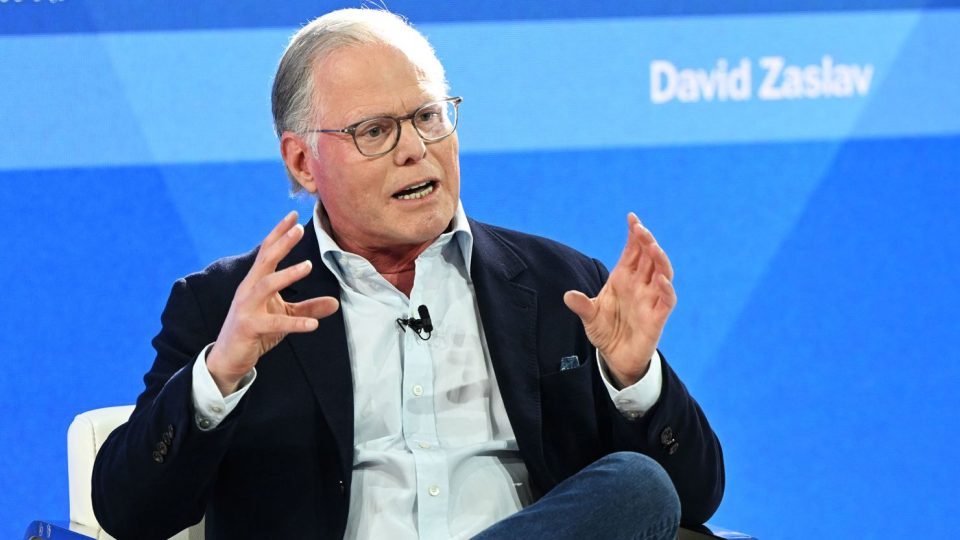Warner Bros. Discovery (NASDAQ: WBD) shareholders have voted against the compensation packages of several top executives, including CEO David Zaslav’s pay exceeding $50 million. This marks a shift from last year’s narrow approval, when 53% of shareholders supported executive pay.
David Zaslav, who has led Warner Bros. Discovery since its 2022 formation through the merger of WarnerMedia and Discovery, Inc., earned a total of $51.9 million last year. This figure includes base salary, equity awards, and other forms of compensation. Despite his leadership role in one of the largest media companies, the shareholders’ rejection signals growing scrutiny over executive pay levels.
When compared to peers in the streaming and entertainment sector, Zaslav’s compensation is substantial but not the highest. Netflix’s co-CEOs, Ted Sarandos and Greg Peters, received $61.9 million and $60.3 million respectively in 2024. Meanwhile, Disney’s CEO Bob Iger earned $41.1 million, placing him below Zaslav in terms of total compensation.
The shareholder vote reflects a broader trend of investors pushing back on executive pay packages they consider excessive or not aligned with company performance. Last year’s slim approval margin hinted at rising dissatisfaction, which has now materialized into outright rejection.
Warner Bros. Discovery operates in a highly competitive and rapidly evolving media landscape. The company’s financial performance and strategic decisions, such as content investments and streaming growth, are under close investor watch. Executive compensation is often a focal point in assessing whether leadership incentives align with shareholder interests.
The rejection of pay packages may prompt the company’s board to reconsider how it structures executive compensation, potentially placing more emphasis on performance metrics or shareholder returns. It also underscores the increasing influence shareholders have in corporate governance matters.
This development comes at a time when the streaming wars continue to intensify, with companies like Netflix and Disney investing heavily in original content and global expansion. Executive pay is part of the broader conversation about balancing talent retention with fiscal responsibility.

